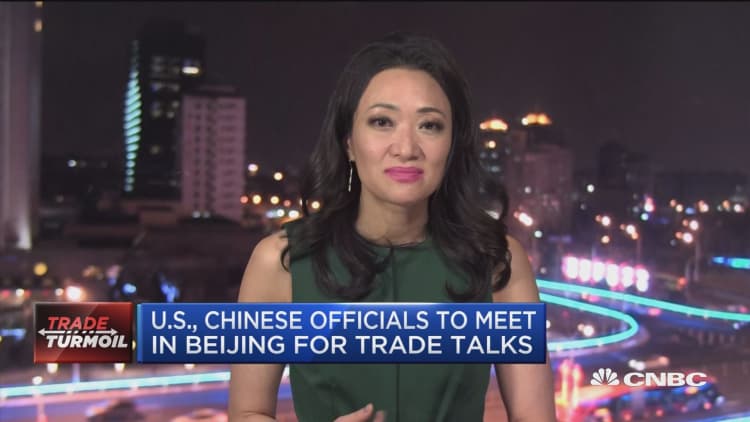The trade deal U.S. negotiators are seeking will have some teeth in case China goes back on its trade promises, as it has in the past, The New York Times reported.
A top priority for Treasury Secretary Steven Mnuchin and U.S. Trade Representative Robert Lighthizer, who are set to hold talks this week with Vice Premier Liu He, is to put in place an automatic tariff mechanism that would raise duties on Chinese goods if its exports to the U.S. keep rising, The New York Times reported on Tuesday, citing three people with detailed knowledge of the negotiations.
China has a history of not living up to its trade obligations. When China joined the World Trade Organization in 2001, it made a promise to allow foreigners to access its banking and telecommunication markets. However, to this day, it hasn't let any foreign company step in. American negotiators want to make sure China will face some punishment if it repeats this behavior.

The mechanism is not a new idea. It was put in place in 2001 when China joined the WTO, and President Barack Obama used it in 2009 to impose tariffs on Chinese tire imports when the U.S. market was disrupted. But China retaliated with duties on cars and poultry. The rule expired in 2013.
American negotiators now seek to make China enforce its earlier promises and make a pledge on issues like protecting intellectual property and limiting government subsidies to exporters, the report said.
President Donald Trump has softened his stance on the trade battle with China, saying he's open to letting the deadline slide if the two sides can reach a trade deal soon. The March 2 deadline is crucial in the negotiations as U.S. tariffs on Chinese goods will increase if a deal is not struck before then.
The stock market has risen this week as the two countries came closer to a comprehensive trade agreement. Trump's potentially postponing the March deadline also added to the optimism.
When asked how the trade meetings in Beijing went on Tuesday, Mnuchin said "so far, so good."
—Click here to read the original report from The New York Times.
WATCH: Chinese trade officials feel U.S. reps want trade talks to fail



